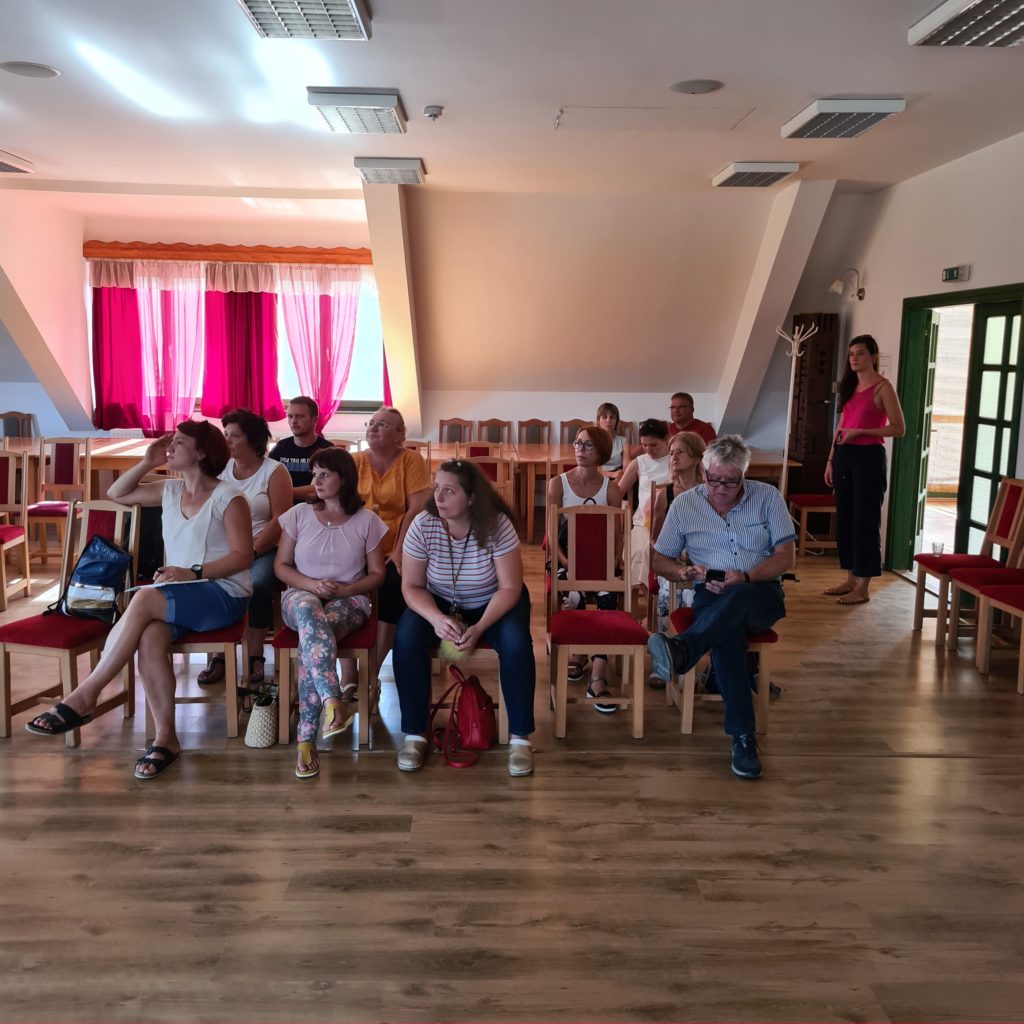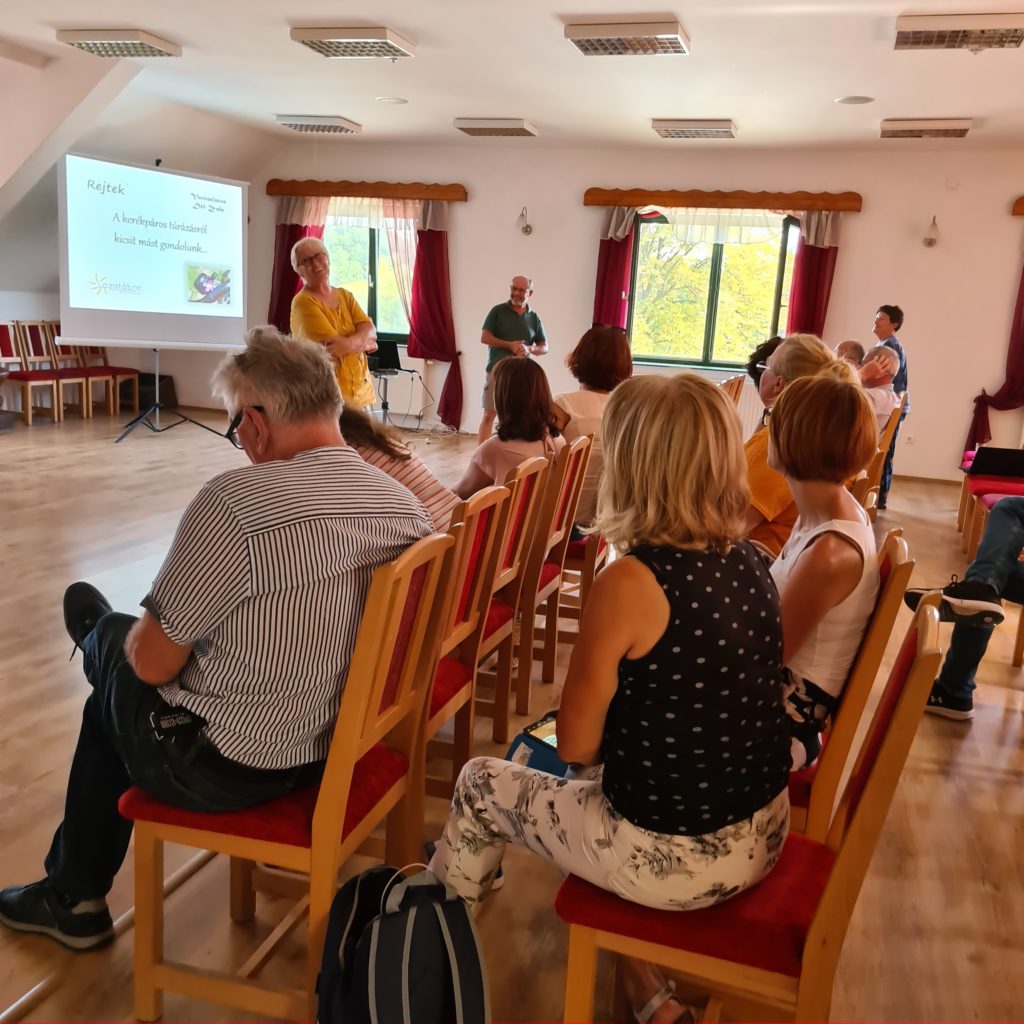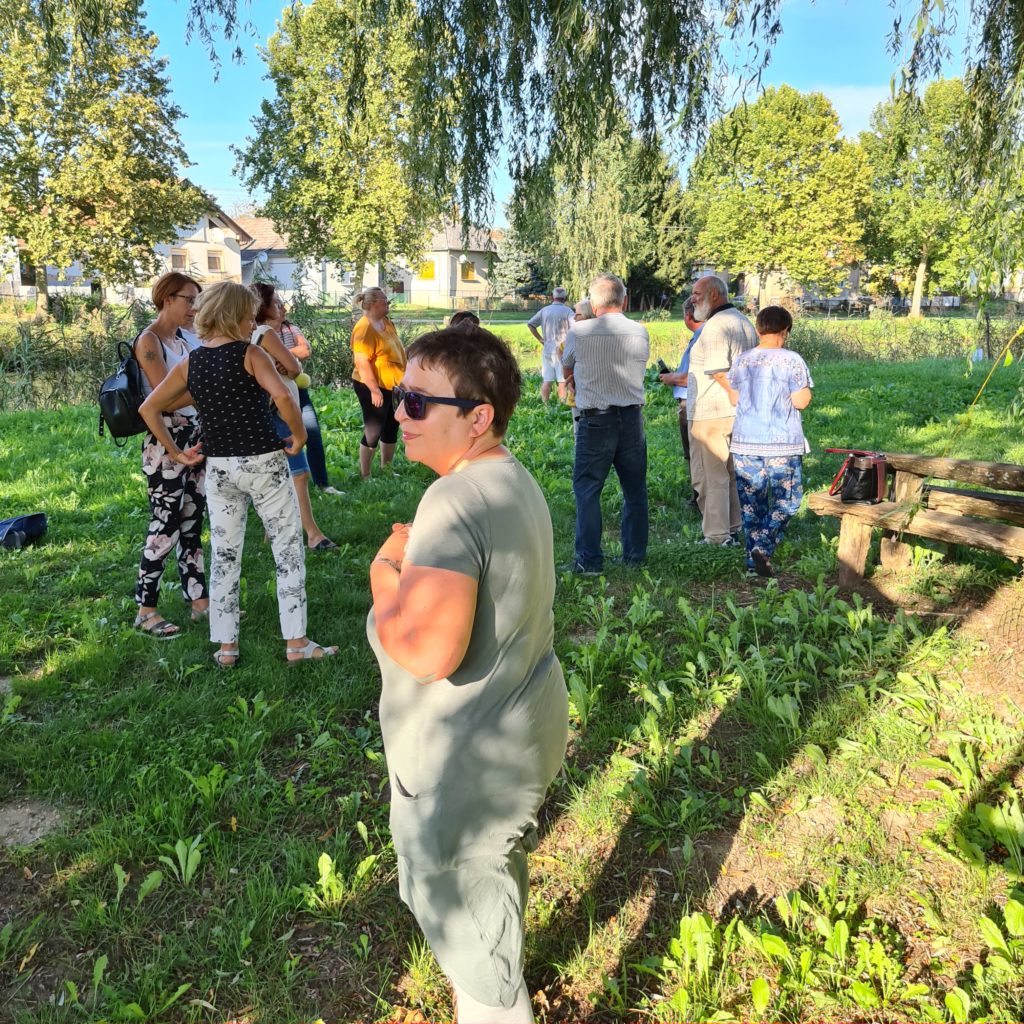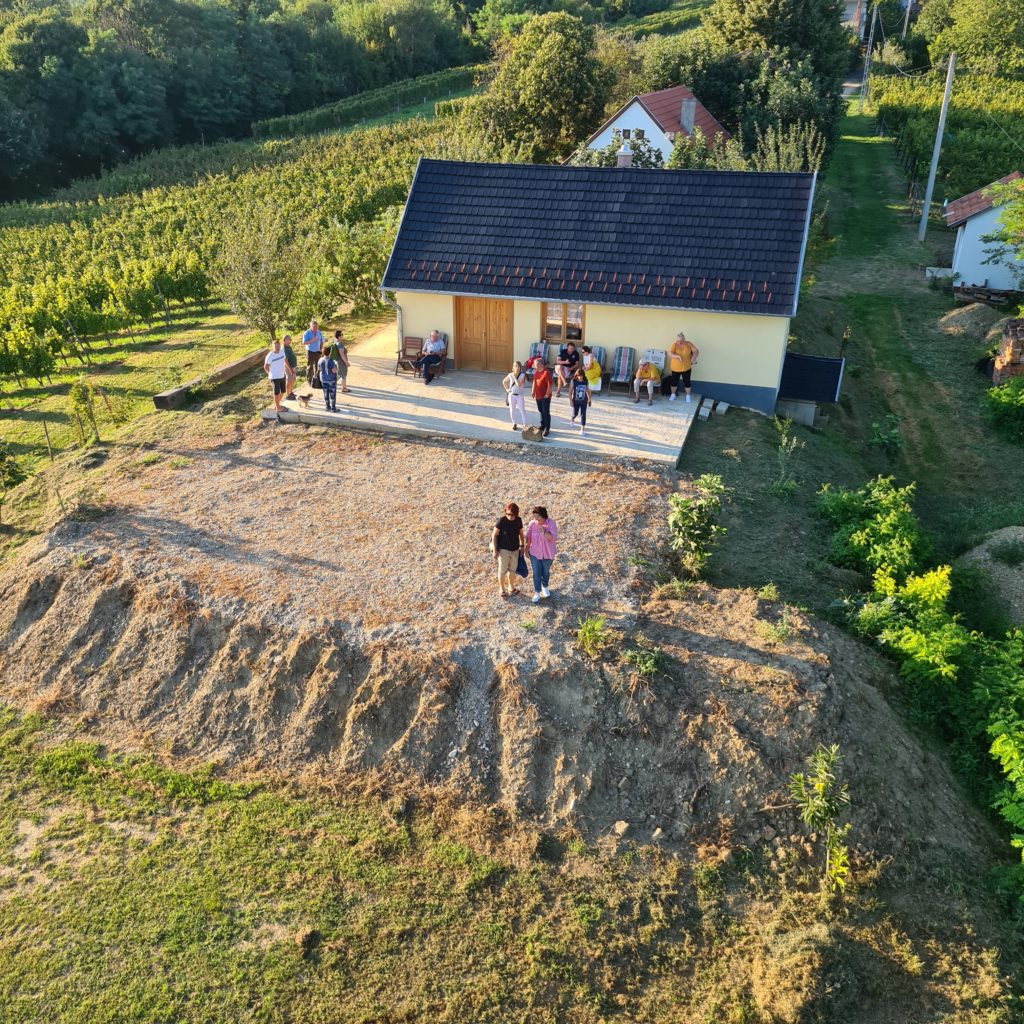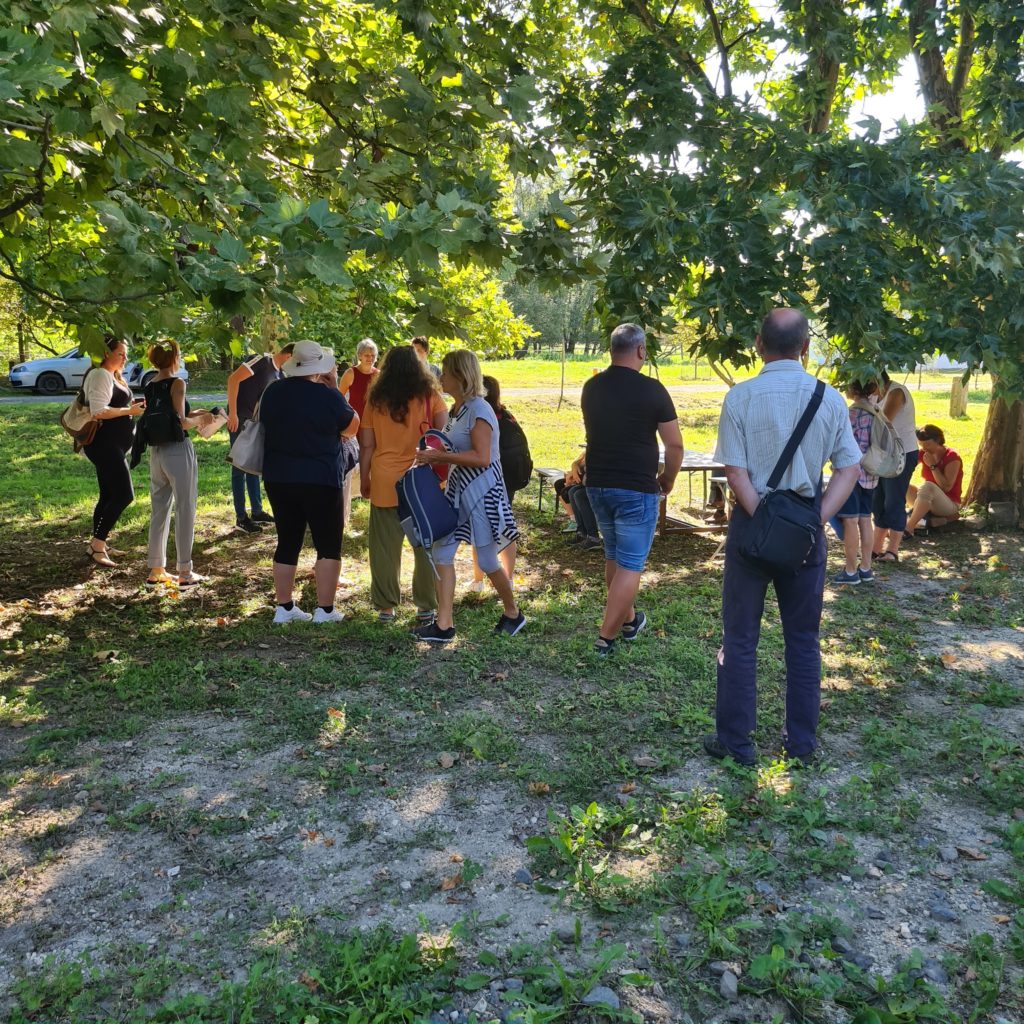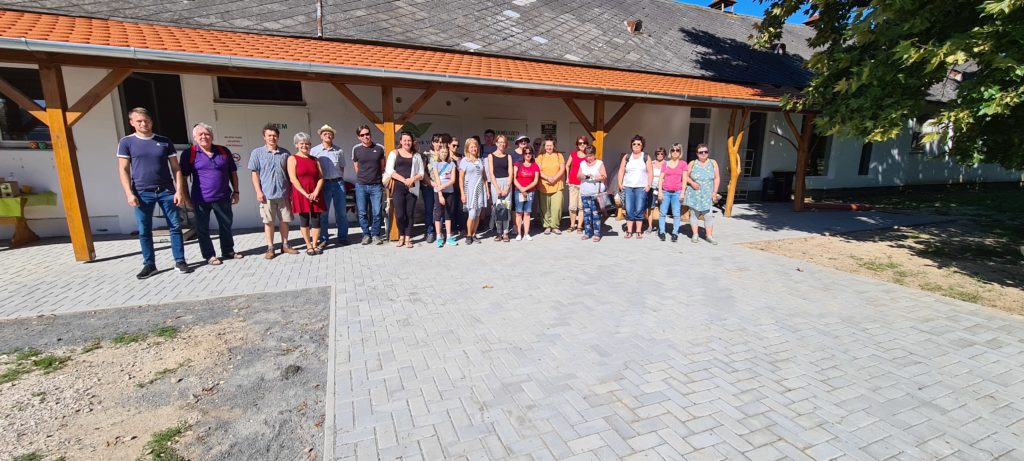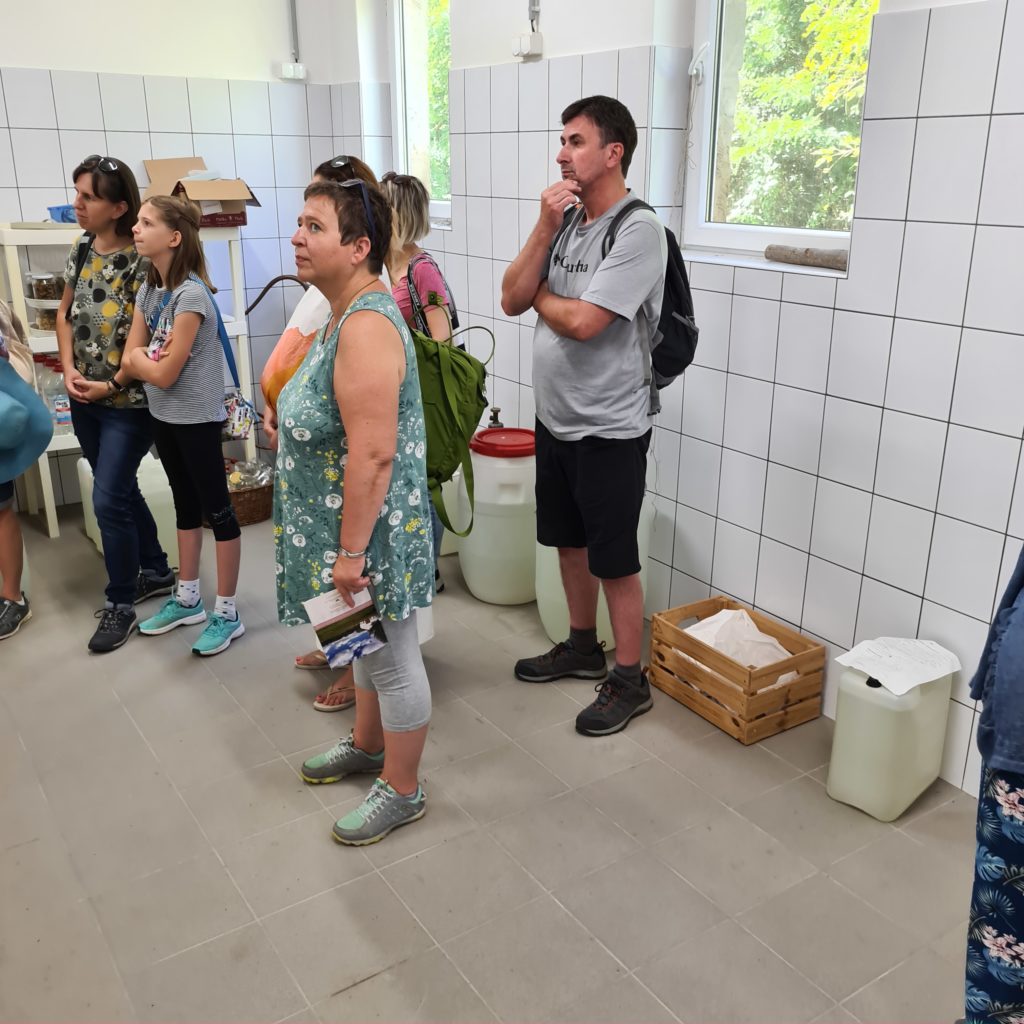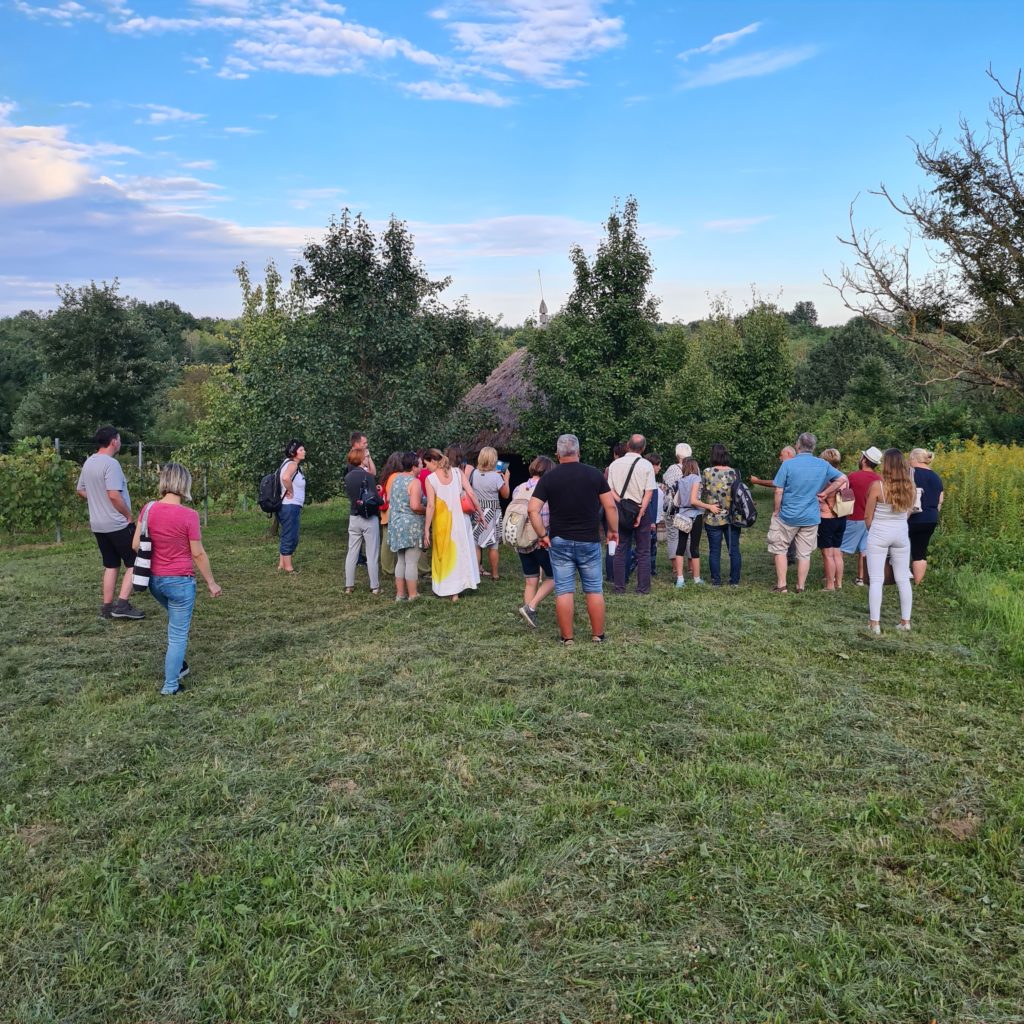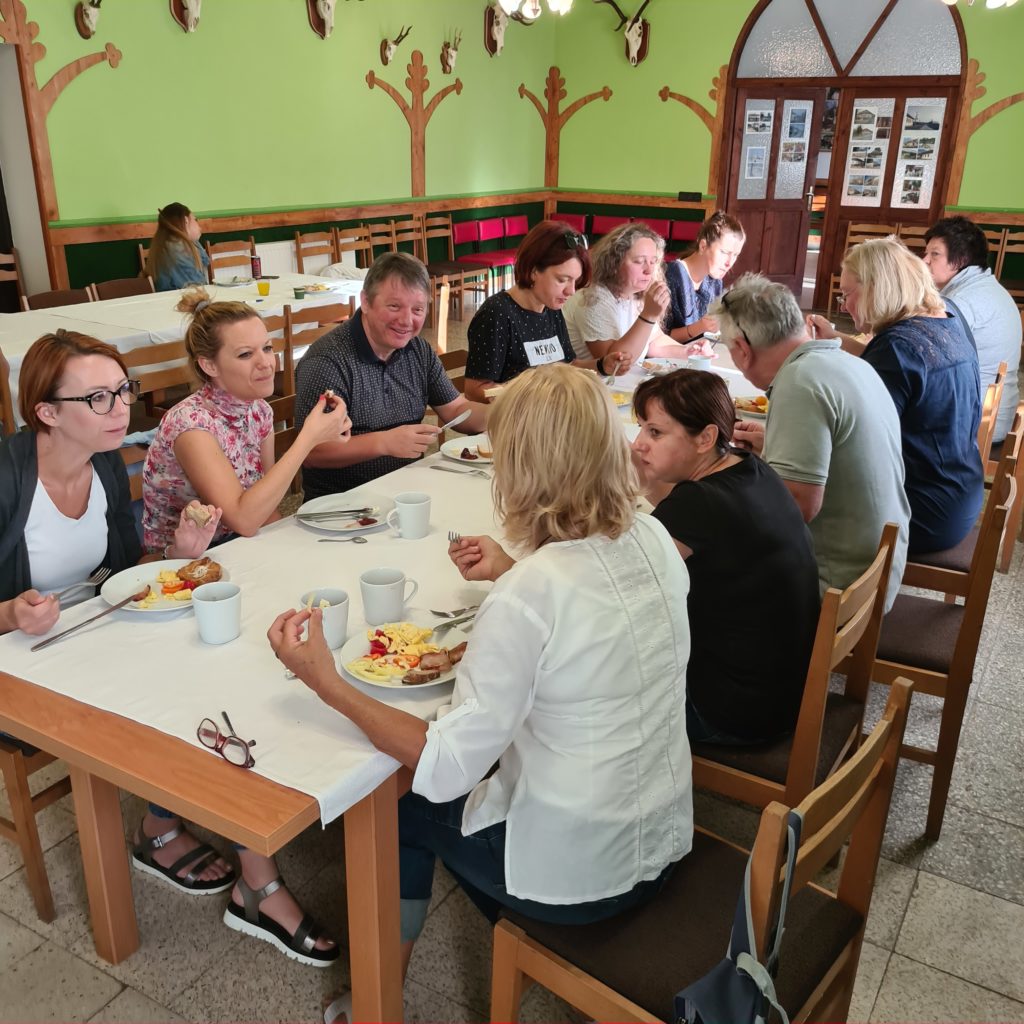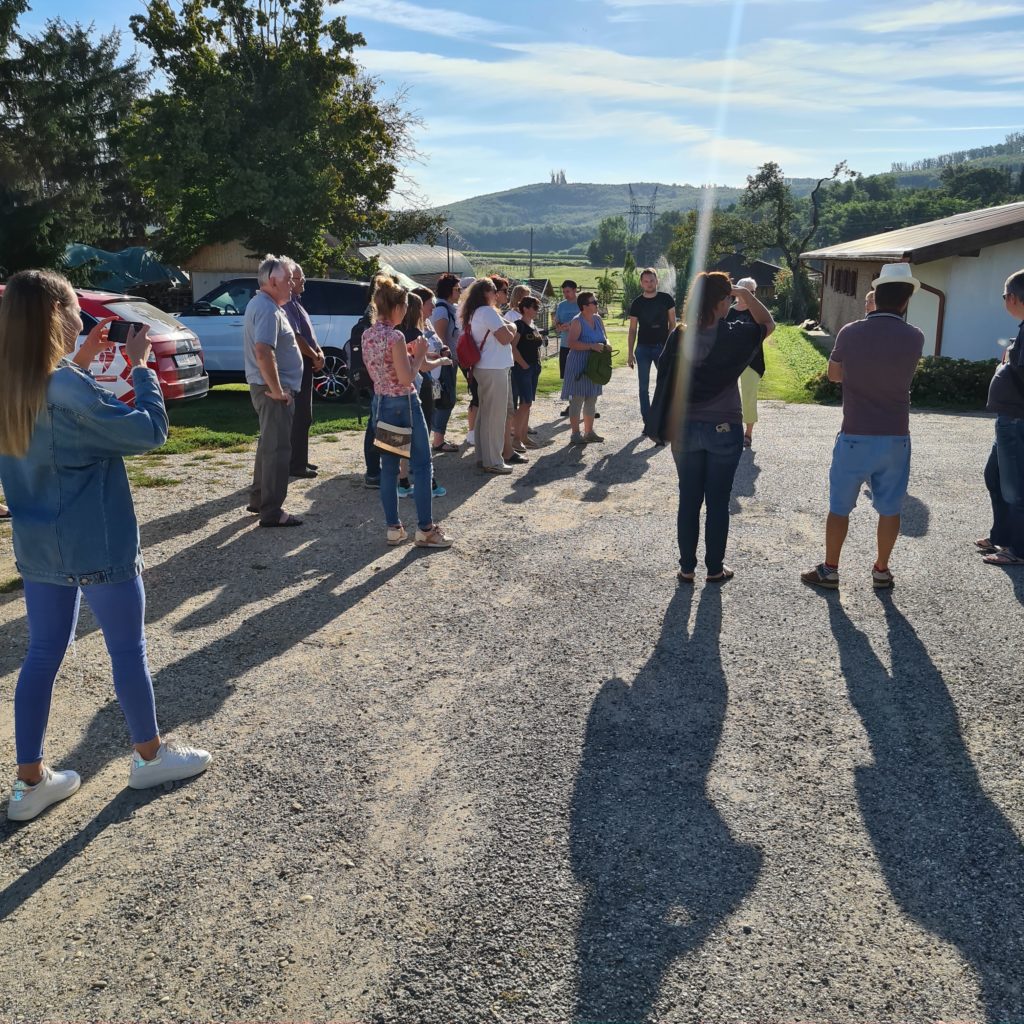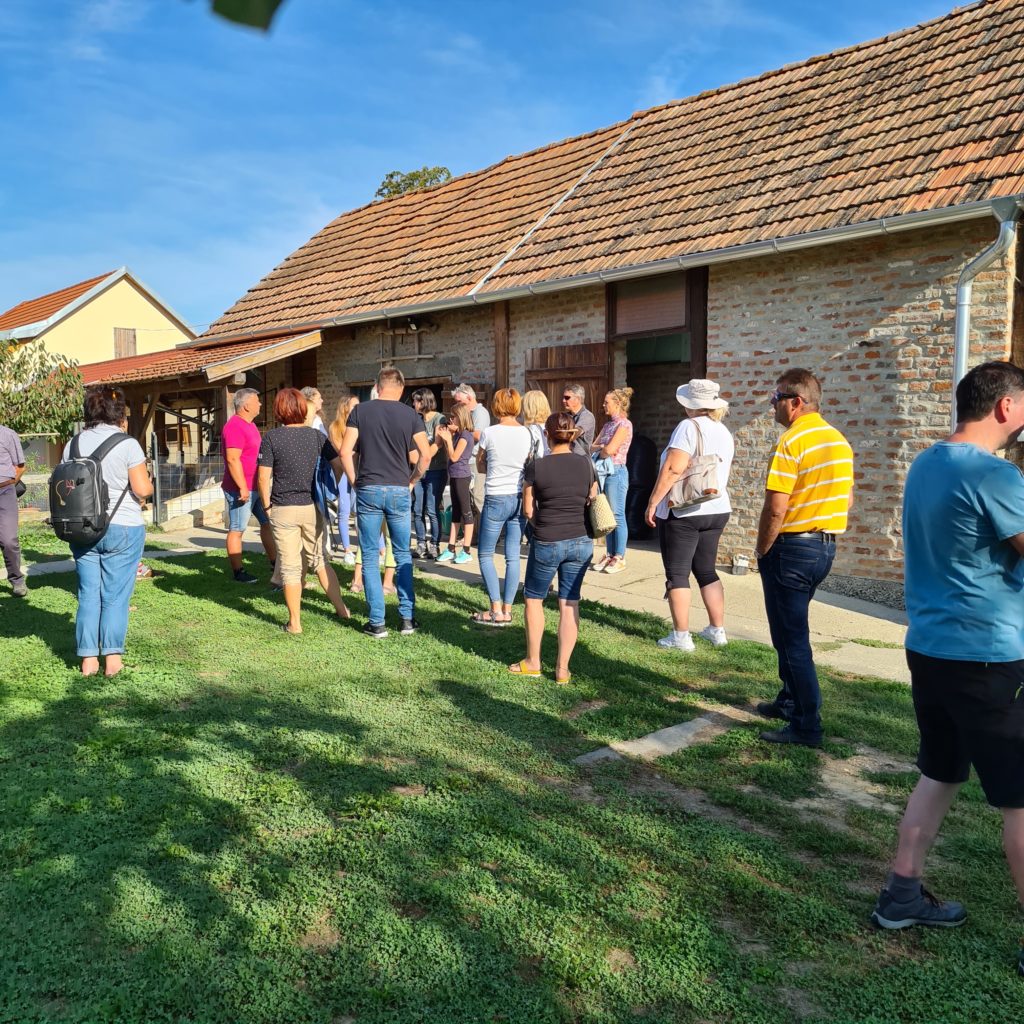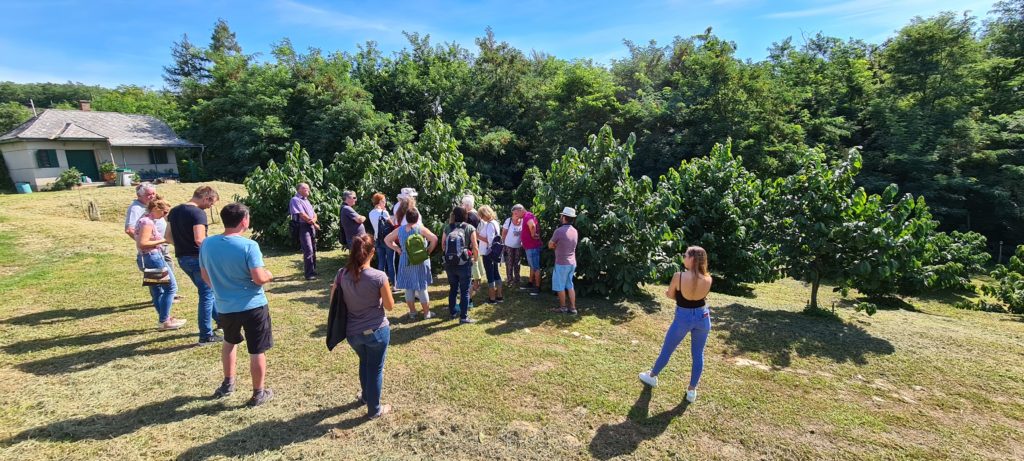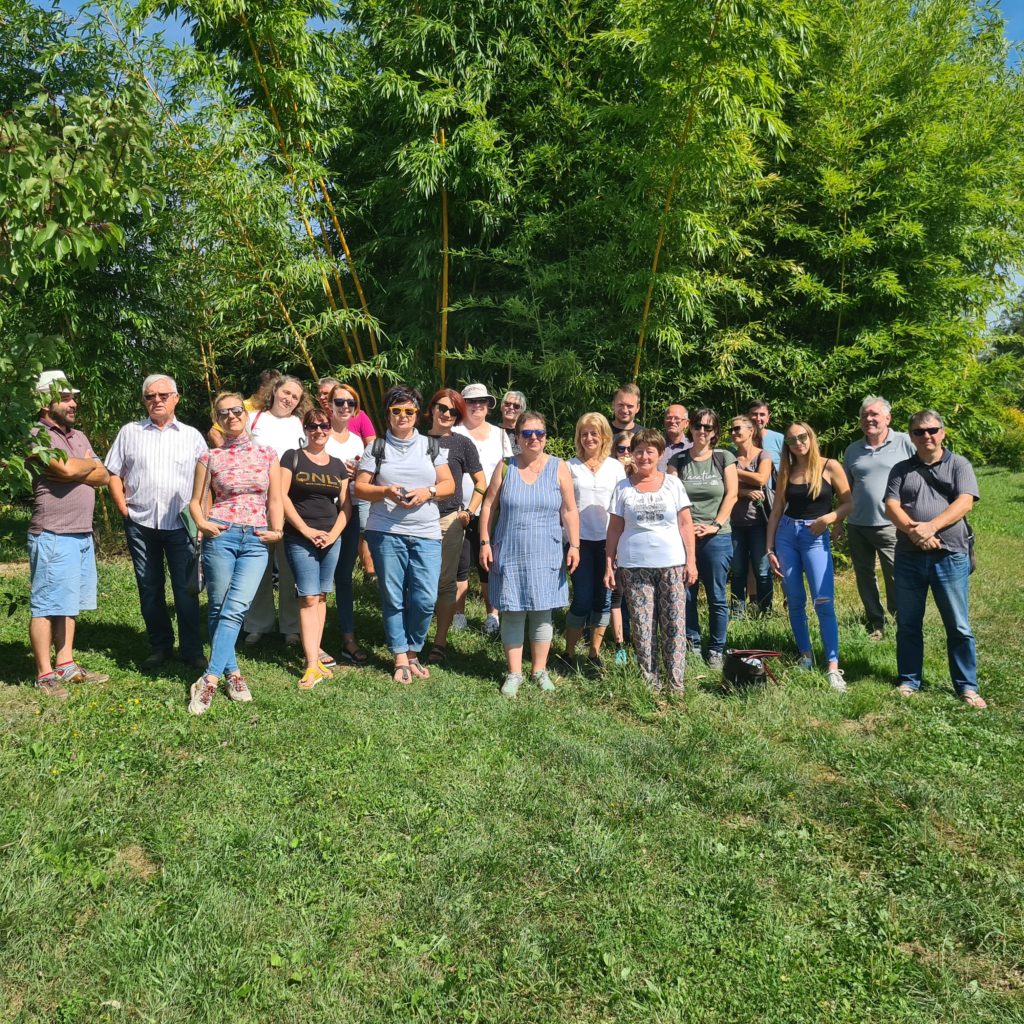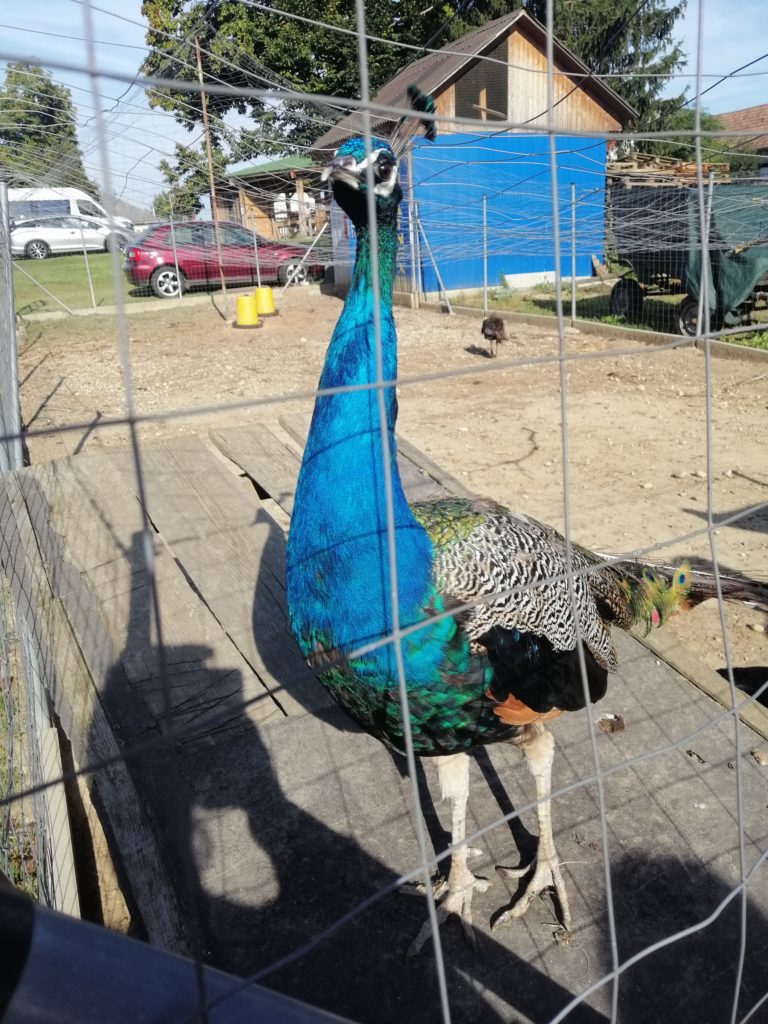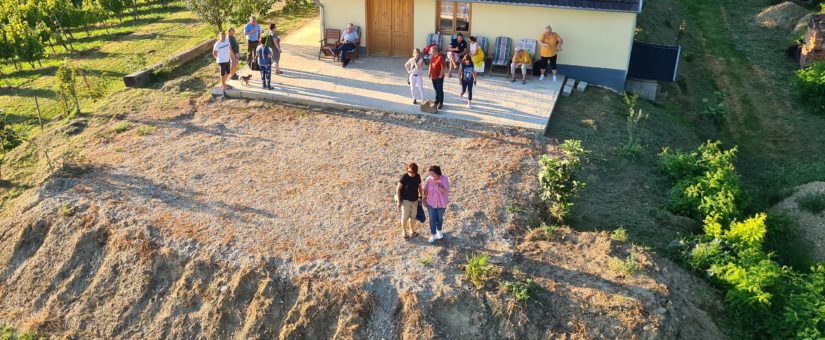
Study tour in Hungary
In the framework of the Interreg V-A Slovenia-Hungary Cooperation Programme, we organized a study tour to Zala between 26 and 28 August 2020 as part of our SENS NETWORK project. The aim of the study tour was to get to know the organisations and/or activities on the spot and in practice, who are role models of social enterprises.
The study tour was planned for this Autumn, but because of the second wave of the COVID pandemia, we brought it up, which was a very good decision.
On the first day we were in the House of Nature in Kerkaszentkirály, at the Centre of the Zala Green Heart Rural Development Association (ZZSZ). First, we became acquainted with the incredibly complex and successful rural development activities, results, plans and problems to be solved. The ZZSZ’s activities are social enterprises. The ZZSZ is the local LEADER association, which is a model for achieving harmonious and effective cooperation between the various actors in the spheres – economic, civil, institutional/municipal – to achieve complex sustainable rural development based on local resources here in South Zala, at the triple border. The area has excellent environmental and – thanks tot he triple border – has a rich and varied cultural values.
On this basis, the main focus of rural development is the creation and development of the local rural tourism network: ecotourism based on excellent environmental conditions (Kerka, Mura, forests, nature park, NATURA 2000 areas, traditional landscape management, agrotourism (wine and gastoturism), other soft tourism – cycling, boots, and relaxing. We became acquainted with the activities of ’Sportschooll’ cycling tourism development in Lispeszendarorján, where the small region became a bicycle paradise. In addition to sustainable tourism, the other main development strand is local products, mainly, but not entirely, linked to tourism. In this context, a local wine-growing network has been established, local products specific to the area have been mapped and new local products are being developed as a very innovative element. Their important and unique goal and activity is to find new features for vineyards, that are now impaired, so that they can be revived. This solution is seen in fruit growing due to local, special environmental conditions, but not only in traditional fruit varieties, but also in completely novel alternative orchards (e.g. kiwis, figs and other varieties that are still special today). They have also not kept the problems quiet, the population loss and ageing in the region are even higher than the national average, but they hope that, they can mitigate it by complex rural development.
It has become clear to all participants of the study tour that the secret to success here is exceptionally strong cooperation, which is a win-win and courageous undertaking, and they are not afraid of the new, the more unusual. The whole activity can be regarded as a social enterprise, on which the participants work in a wide variety of organisational forms – non-profit, economic , municipal – and, of course, social cooperative.
We met Kerkaszentkirály, the Kerka Holt branch, and in the evening we took part in a traditional wine tasting in Zala at the mayor’s winery.
During the second day our first stop in Zalaszentlászló was the Valley of Herbs Social Cooperative
It was agrotourism center. Here, the “engine” of the Social Cooperative was a beautiful and very impulsive couple who presented the location and activity. The Valley of Herbs was created with the aim of creating and promoting products, foods, traditional folk and modern alternative medicine-related products related to healthy lifestyles. A healthy environment and lifestyle approach is a fundamental guiding principle in decisions, often ahead of profit interests. Activity: organic farming (14 ha organic farm), fruit farm, herb growing and processing, keeping domestic animals, agrotourism accommodation – Herbal apartment, active workshops, demonstrations. We became acquainted with the local processing, distillation of herbs, the modern techniques developed for traditional fruit pruning, other fruit processing (e.g. juices), the stylishly furnished Herbal-Lak Guest House, the yoga center under construction, and their other plans. We had the opportunity to view and purchase local products.
The Valley of Herbs Social Cooperative is in an enviably good position after the initial many, many difficult years: economically successful, self-sustaining in a beautiful environment, the members, the people who work here apparently enjoy their work very much, which is not really a job, but rather a way of life. This place radiates harmony, harmony of human-landscape-animals-plants, which is truly to be followed, exemplary!
Recharged from the experience, we have lunch at the very pleasant, stylishly renovated St. Anthony’s Inn and continue our journey to Oszkó.
Our host here was the Hegypásztorkör Association -who greeted us very- is in good position after many many bad years: they has a success and subsistence economy, they Activities of the mountain herding circle: Complex rural development, landscape management, traditional folk architectural traditions, local products, local community development. They are now made up of several organisations, a complex, model-based social.
Hegypásztor Kör was established in 1985 by a group of enthusiastic local adolescents is order to properly document and possibly preserve the old vineyard press house of monument importance in the outskirt of the settlement and to organise cultural events enlivening the life of the village. Lately, the organisation’s range of activities has already widened significantly. The strategy of the Association has been built on event management and rural development, boosting local product manufacturing and organising community events.
Besides sticking to the original ideas the activity of the association has largely widened during the past 30 years: rural development, value protection, touristic development, viticulture, youth work, taking up local products.
Classical self-organization – preserving its community development character – has grown into a social employer, as a non-profit enterprise. In addition to the continuous tender work, the goal is to create other, independent sources of income. The organization currently employs 7 young people. Besides the local activity (Oszkó, which has 650 inhabitants), the organization widen its activity area for regional and county areas.
The organisations here are also very diverse – non-profit, economic, municipal and social fabrics – but once again we found that, regardless of the form of organisation, they can all be considered social enterprises because of their values and activities. It was very remarkable to see how the young people of the 1980s created a job and a keeper for themselves and their environment based on the strength of tradition and community. Many of them moved back after completing their studies, stayed here, and today we can say that the Mountain Herding Circle has become multigenerational and, which is quite rare in today’s world, they are able to re-touch, value and opportunities to resettle young people and give them the baton. Congratulations!
Full of the information and influences we have received here, we have started our study at the next location of our study to the Fairy Garden in Pórszombat
What is the Pixie Garden in Poreszombat?: sustainable fruit management, genebank of traditional fruit varieties, the spiritual and practical center of the fairy garden network and the place of pálinka- tasting. Its activities and operations are also voluntary. This theme can be operated as a social enterprise in any rural area.
Native Carpathian basin varieties are an important part of sustainable agriculture because they do not require chemicalization (spraying, fertilization), they are resistant, they can with endure weather extremes. – Gyula Kovács is the creator and creator of the Fairy Garden Network.
Today, up to half a dozen varieties of fruit are known to people, who are coming to the market, even though there was once a huge variety of fruits. There were 40-50 varieties in a single garden. Gyula Kovács of Porszombat has been researching the fruit culture of the Carpathian Basin for decades and already has three and a half thousand different trees – trying to save the horticultural heritage of posterity in its own gardens. Luckily, he’s already got followers, and several little Fairy Gardens are helping him to sustain this knowledge. He successfully formed the Hungarian Fairy Garden Network. We quote him: “I was not looking for the fruits, I was looking for the culture and ethnography of Göcsej. Lucky for me, which was actually a tragedy, I witnessed the destruction of the Göcsej farmworld. The mentality of the people who lived there evoked the old days: they produced everything for themselves. I did not call for the science of pomology, but for the man who lived in that community. I researched not only the fruit tree, but also its ethnography, its associated gastronomy and medicine. I was trying to take it all in. This led to the preservation of the old varieties” The man working as a forester began to orient himself in orchards in the 1980s. His research would lead to the creation of a genebank, which was clearly seen at the early 2000s. “I wasn’t preparing to have a huge collection, I just wanted to preserve the decaying legacy of Göcsej. When the number of varieties grew, and more and more people became aware of it, many people saw it as their heart to keep this heritage.
The fruitmaker now preserves about 3,500 varieties on 11 plots of land, a total of nearly 10 hectars, in the gardens of apples, pears, apricots, cherries, quince, peaches, plums, snacks, cherries. On Saturday, Europe’s largest one-nation fruit collection was created.
After a little pálinka tasting, we headed back to Kerkaszentkirály, full of experiences.
Even though the day was very busy and tiring, we had so much experience and information that we talked until late at night and until dawn after dinner.
The first place on the third day was Tormafölde. We got to know the activities of the Rehabilitation Centre, which was run by Dr. András Berta, professor of cancer research and naturopathic medicine and biologist who moved here 10 years ago. The main activities of the Centre are natural medicine, rehabilitation and relaxation. Animals, primarily horses, are kept for therapeutic formation, petting animals primarily, but not exclusively, for children. Feng-sui is a furnished guest house for those looking for healing and relaxation. The most innovative of the many activities is the production of nutritional supplements and teas developed on the basis of research by Professor Berta, primarily, but not exclusively, for cancer patients. Based on complex studies, they are waiting for those who want to heal and relax. After the kindergarten ceased to exist, they bought its building and set up a catering kitchen for the whole village. Although it is an organizationally economic organisation and obviously has a profit-driven part, it can still be considered a social enterprise because of its activity and its purpose and values.
The last stop of our study was Becsehely, the vineyard in Becsehely, which was exactly an estate where there were no grapes! However, there were Kiwi plantations, dozens of varieties of figs and almost countless exotic plants today, all of which can be perfectly integrated into the landscape and climate here partly because of the biogeographical conditions here and partly because of climate change.
On the first day, we heard quite a lot about the extremely important and unique innovative purpose and activity of the ZZSZ, in order to find new functions for vineyards that are now impaired, so that they can be revived. This solution is seen in fruit growing due to local, special environmental conditions, but not only in traditional fruit varieties, but also in completely novel alternative orchards (e.g. kiwis, figs and other varieties that are still special today). We have seen this idea here in practice that it actually works.
Under the leadership of the Miklós family – Ákos Miklós – he started a family business here seven years ago. Kiwi is grown on nearly four hectares of land, as the soil and climate here are perfect for large-scale production of kiwi fruit. After difficulties in getting started, this fruit, called exotic, can be sold to supermarket chains. The crop is growing every year, and they are currently thinking about automating work processes. In addition to kiwi fruit, other fruits and special plants are also experimented with in Becsehely, such as figs, persimmons, pomegranate, Native American bananas, mini kiwi fruit, jujuba, pecans and other exotic crops. Under construction there is a show garden of about half an acre with palms, yukkas, cactuses, evergreen oaks, silkworms. It is planned to open the area later for interested visitors, on the basis of pre-check-in, in an organized form.
The company is a real for-profit enterprise, but their activities are value-creating and guide rural development to such an extent that it can rightly be called a social enterprise. The activity is truly multiplyative, model-based for social cooperatives and other social enterprises
After that, we took the bus and went back to Kerkaszentkirály. Here we briefly assessed the study trip and fully agreed that every location, every project, every person was very inspiring and model-valued, and it will take many months to process the experiences. In addition to the locations, the Hungarian-Slovenian team on the study trip was also very active and interested, the evening conversations were as important as those seen during the day. We believe that this study trip was the starting point for many new collaborations. It was very typical of the study trip that we couldn’t keep the planned time anywhere because there was so much interest, there were a lot of questions, it was a difficult departure, so it was quite long every day. In closing, we’ve confirmed the fundamental fact that on the study trip that can be observed, it may not be worth participating in… Well, ours was very worthwhile.
We are excited to continue in Slovenia as soon as COVID19 allows.
- Posted by Matejka Horvat
- On October 1, 2020
- 0 Comments


